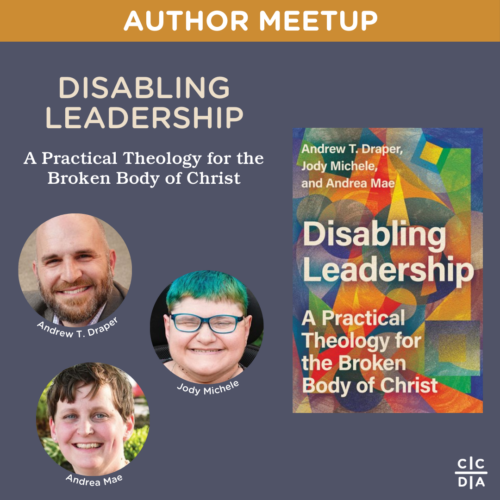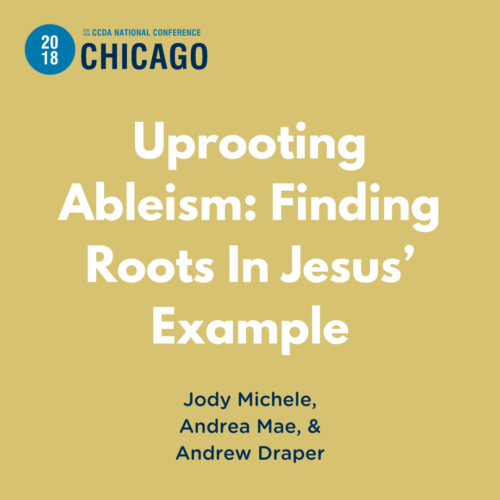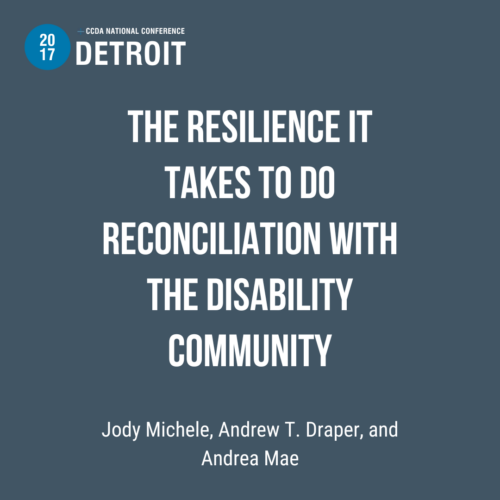God wants to glorify Himself through the Church. For too long, the Church has kept the disability community and their families at arm’s length, not acknowledging God’s purposes for them in making His body more complete and to become a better witness to a world that needs a clearer image of Jesus.
This affinity group is a safe place to discuss how the Church can integrate the disabled, neurodiversed, and their families. This group is also a safe place to seek healing from ableism, from both inside the church and from the world. This is a place to figure out how to do life while managing our disabilities and/or supporting those with disabilities.
“Disability Curatives” An excerpt by Dr. Amy Kenny
“God told me to pray for you,” she says. Her words linger like cloying perfume in a claustrophobic space. “God wants to heal you!” She is undoubtedly thrilled with this opportunity. I’ve been here before. It never ends well.
This woman does not know me. She doesn’t have the intimacy that prayer or accountability or sarcasm require. She simply interprets my cane as something that requires “fixing” and ropes God into her ableism, the belief that disabled people are less valuable or less human than our nondisabled counterparts. Internally, I make a swift calculation: endure the prayer to avoid squabble, or call her out on her benevolent eugenics and be branded a heretic again.
I used to play the game. Eavesdropping as they prayed for my broken body, trying to conceal my spasms lest they be confused for demonic convulsions. I thought if I could just assume a veneer of piety, it would inoculate me against their patronizing prayers and invasive interrogations. I believed that I could perfect my way out of people demeaning disability, that somehow my patience would endow me with enough worth in their minds to be considered fully human. All it did was put me on a carousel of dehumanization that made me feel complicit in their toxic theology.
So I choose door B. “I don’t need prayer for healing. My body has already been sanctified and redeemed,” I choke out. I know it won’t be enough, but my dignity is not up for debate, particularly here, in God’s house. Only a second has passed, but there is a lifetime between us…
Theologians/Practitioners to be Following:
- Dr. Amy Kenny
- Dr. Andrew Draper
- Jody Michele
- Andrea Mae
- Lamar Hardwick
- John Swinton
- Brian Brock
- Amos Yong
People with disabilities are often excluded from full participation in church communities in both explicit and implicit ways. Similarly, people with disabilities are often excluded from full access to the places and structures of society. Increasing accessibility is a key component of the ministry of reconciliation, both for the sake of the church and the sake of the world. And yet, as we will see, increasing accessibility is only the beginning of considering the implications of disability for the body of Christ. Reconciliation is costly work that requires concrete action. Yet action without a deep understanding of what it means to be human and what Christian leading entails is both insufficient and harmful. This is where practical theology is a helpful guide.
Disabling Leadership
Dive Deeper into CCD by Learning from our Amazing Practitioners!
Join the CCDA Family
Membership has always been a way for us to accomplish our mission and vision. We want you to succeed in your work, so we created a structure that will sustain our work of inspiring, training, and connecting individuals and organizations just like you. We are constantly striving to update and scale the resources available to our members so that you have the tools you need to complete the good work to which God has called you. Many of these member opportunities you will see below! You can join for as low as $10/month.






